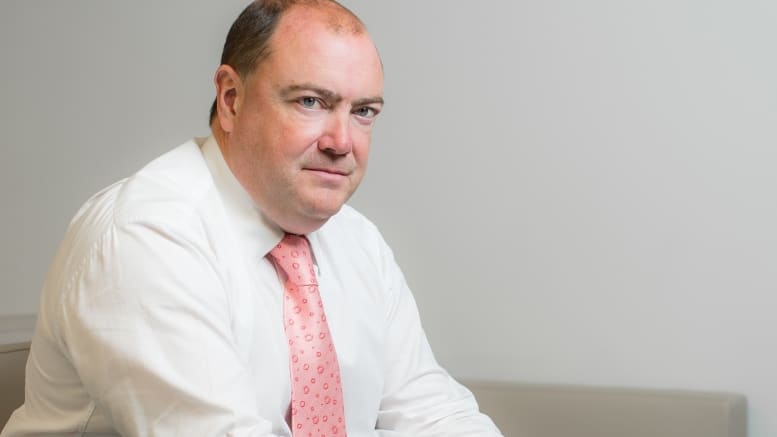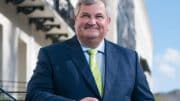First of all Adrian, can you tell us a little about DS Smith? What are its main business objectives?
DS Smith operates in over 37 countries and employs around 27,000 people. We work with our customers to deliver packaging solutions that reduce their costs throughout the supply chain and drive sales at the point of sale. We’ve built a leading position, providing packaging solutions and corrugated packaging across the whole of Europe and last year we established a transatlantic presence through another transformational acquisition.
We focus on innovation and consumer insight to deliver the best in packaging solutions. We are not only leading the way in retail ready packaging (RRP) for traditional retailers, but also of equal importance now with the growing number of e-commerce retailers. At DS Smith we are working with the best consumer facing brands and e-retailers in the world. The top line of the business is growing strongly, and rigorous corporate government and financial discipline and control remains paramount to the board. We’re working hard to ensure the business delivers consistent returns each and every year.
DS Smith exists in a sector which has historically been looked at as highly cyclical, but the business model we have created is designed to deliver sustainable returns. Our industry hasn’t always had much focus on the customer and has operated very locally, our model has been to provide consistently high quality and service to our customers on a pan European basis and now transatlantic too. As a B2B company we are constantly striving to provide new and innovative solutions that enhance how our customers perform in the markets they operate in.
How has the company evolved in recent years?
When I started at DS Smith, our CEO Miles Roberts told me he wanted to double the size of the company within five years. We achieved that in four and we want to repeat this again over the next five years. We’ve grown the business substantially, both organically and by acquisition, and our revenues have grown from around £1.9 billion in 2012 to more than £4.8 billion last year. We made our first transformation acquisition in 2012 and since then we’ve made acquisitions across Europe in 18 countries strengthening our position in Iberia and South East Europe. This increase in footprint has been driven massively by customer demand for our products and service across wider geographies.
Our vision is to partner with the best businesses globally to deliver the best possible quality and service. Packaging has historically been fragmented across Europe and very localised. We recognised the need for major FMCG customers to optimise their supply chain and for packaging to catch up with other industries. DS Smith is very different to what it was just a few years ago. At the end of 2017 we entered the FTSE 100 which wasn’t a specific goal of ours but is testament to the hard work of our employees across the world.
You joined DS Smith in 2013. What have been the biggest challenges you have faced since you became CFO?
We were a relatively small company when I joined but our CEO Miles wanted the company to operate as a major multi-national. We had big ambitions and came from quite humble roots. We needed to put an infrastructure in place that could deliver this ambition and so we brought in some strong leaders who put together great teams, in order to build us a solid platform. The biggest challenge has probably been taking a small company and its infrastructure and turning it into what was required to become a successful large multi-national company.
Can you tell us a little about your career development before joining DS Smith?

Cardiff Blues Rugby Club is one of the teams sponsored by DS Smith
After qualifying, I specialised in corporate finance and treasury and started working in this area for Grand Metropolitan. I then moved to Inchcape before joining PwC where I worked with major multinationals as a senior manager. Six months before what we now know as the Asian financial crisis happened I returned to Inchcape as group treasurer. This period of time gave me big exposure to emerging markets which has really stood me in good stead throughout my career. I stayed with the business until it was broken up into a number of different operations. I then worked for Pilkington in a number of finance roles before joining AstraZeneca initially as group treasurer and after three years I became European Financial Director. I eventually wanted to return to the UK and so joined Tesco as Director of Corporate Finance, working again with emerging markets in China and Eastern Europe.
When I heard DS Smith was looking for a new FD I reached out to Miles directly with a letter explaining what I could contribute to the business, and the rest is history. It was a bold move but truly shows that if you don’t ask, you don’t get.
What is your approach to business? What do you like about what you do?
I like to keep things simple. I believe honesty and respect always pay dividends and I’ve tried my best to apply those attributes both internally and externally, and I believe you build a reputation in this way. I have a lot of ambition and always see a need to challenge for improvement in both myself and the teams we’ve put together. I like diversity in my job and in the experiences I get at a multi-national and multi-cultural business. Being given the opportunity to improve both my performance and that of the company is also really important to me, and so is feeling like I can make a real contribution to a business.
How do you think the role of the CFO has changed over the years?
I don’t believe the role has massively changed, but perhaps the job has become more visible in terms of the public eye. The CFOs I admire most all have similar traits, the same ambition and the same skills in exercising of judgement. Different expertise might be needed in different periods of time but what makes people succeed in the role and the core purpose of the CFO hasn’t changed.
What advice would you give to someone who wants to follow a similar career path?
I would say to worry less about being a technical expert within a business, and focus on having good leadership and judgement. The issue with finance is that we’re trained to find answers in a book or legislation but at a certain point in time you can’t rely on just this. We are consistently faced with a variety of different advice and opinions from a number of sources and it’s our job to make judgements on them.
I would also advise on gaining as much breadth of experience as you can possibly get. Get out of your comfort zone and you will learn what is required to make decisions, even if it is the hard way. Ultimately, keep pushing yourself. It’s not just being able to follow what a book tells you – that’s just a tiny microcosm of the role. Successful FDs have pushed themselves to get where they are and have not been afraid to challenge.
What have been your career highs?
I’ve always set long-term and short-term goals, so I experience the highs when I achieve these goals however small. I got as much satisfaction when I got my first promotion as I did when we entered the FTSE 100 last year. In every job I’ve undertaken, I’ve tried to set a series of targets so when I achieve them I get positive momentum and feel like I’m progressing. I’ve worked with some really impressive companies and great leaders, and I’ve learnt something different each time which means the highs have kept coming.
If I had to pinpoint one career high I think it might have to be the Interstate Resources acquisition last year. This happened in conjunction with the announcement of our annual results, and will be a moment that stands out to me as a pretty special moment where our whole team came together to pull off something amazing.
Where do you get your inspiration from?
I’ve been really fortunate to work with very impressive individuals who are constantly pushing forward and motivating – these types of people have always inspired me. You do just feed off others, and when you see truly progressive leaders you try to learn as much as possible from them. I’ve also always enjoyed new experiences and cultures and I think it’s a combination of all of these factors that have inspired me throughout my career.






Be the first to comment on "The Big Interview: Adrian Marsh, CFO at DS Smith"